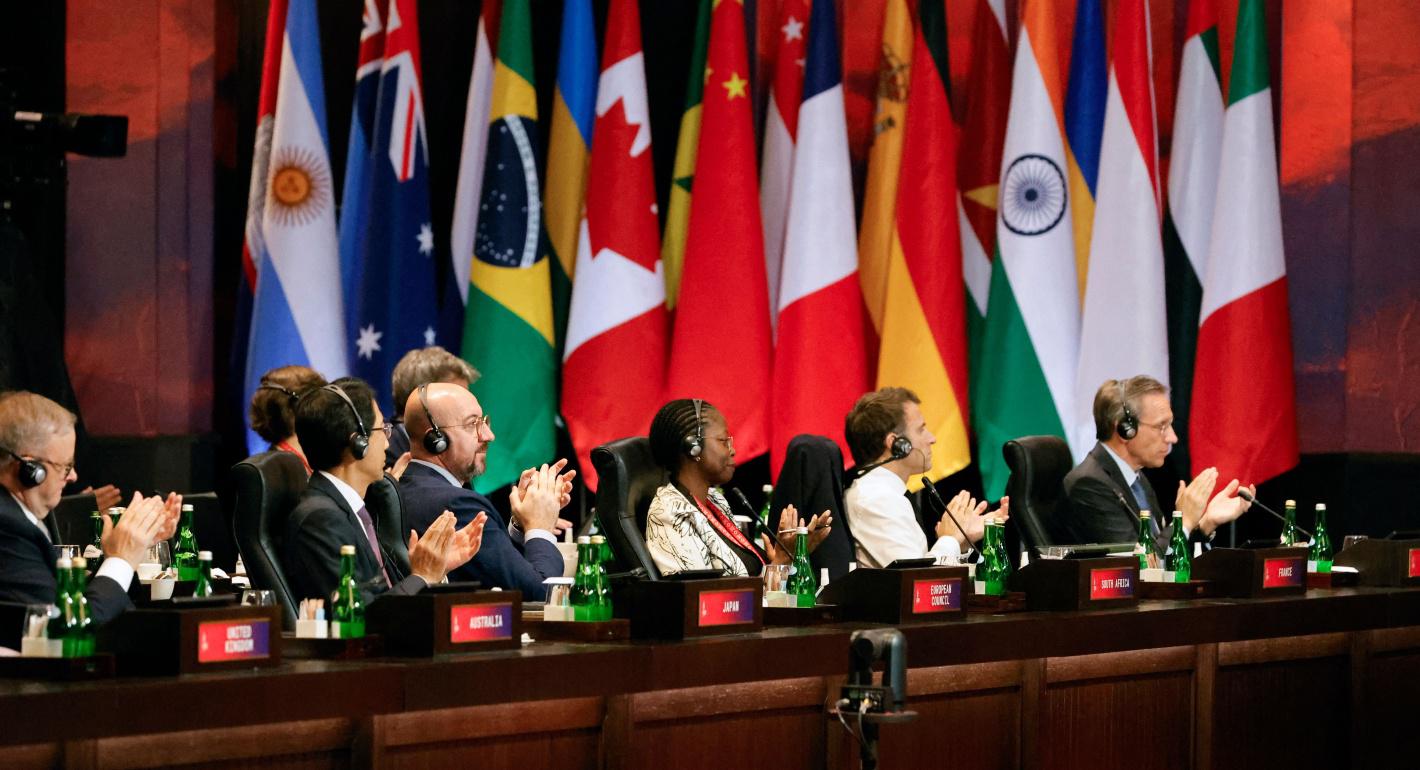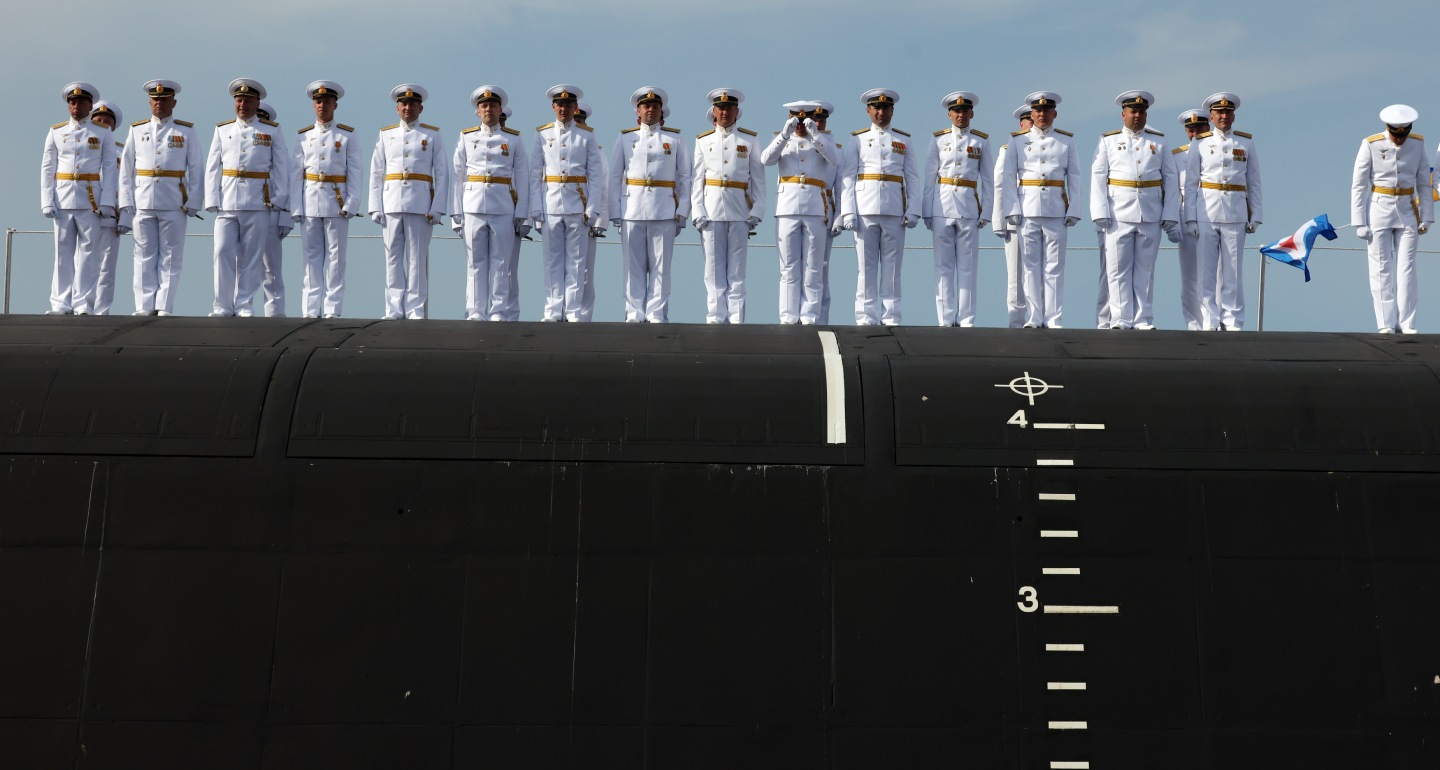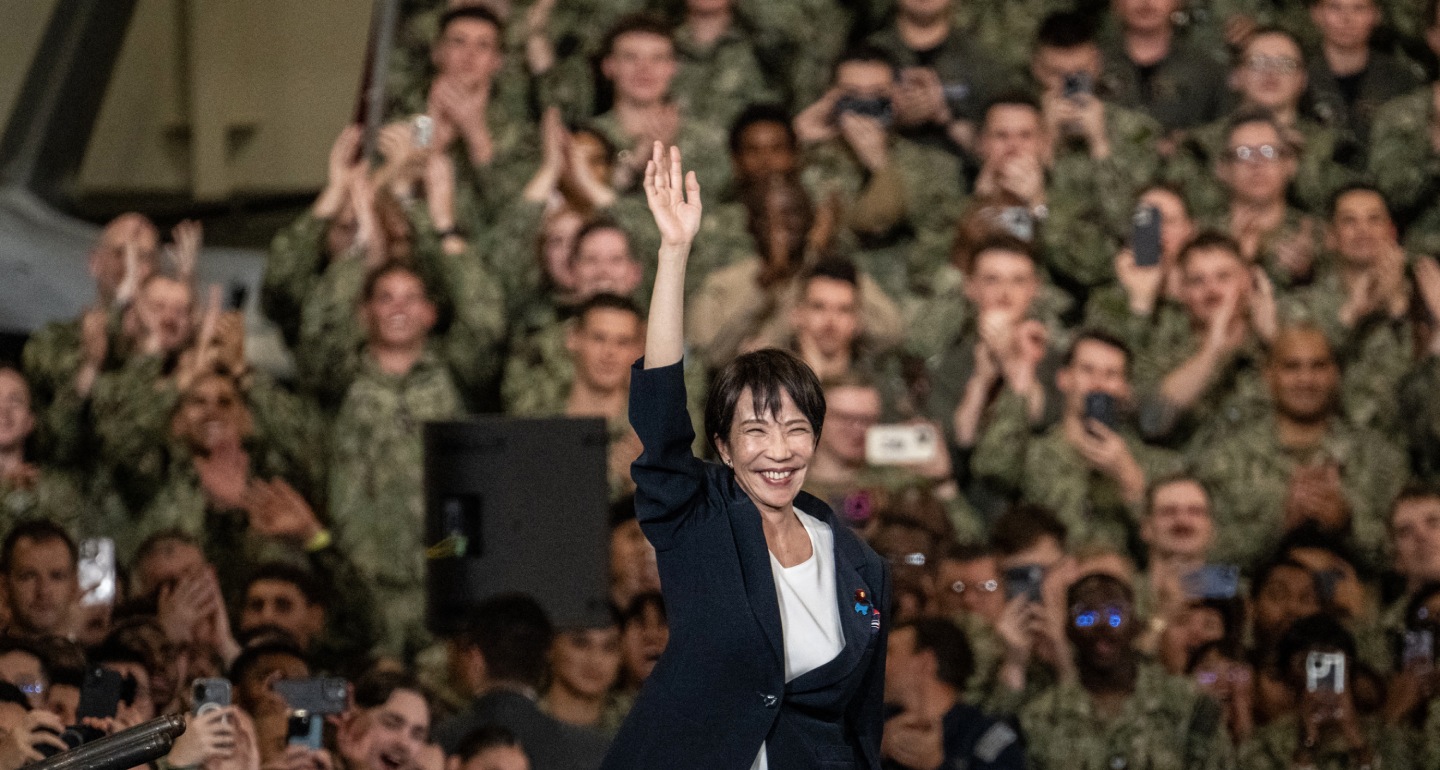The Russian war against Ukraine and the growing U.S.-China rivalry will have a profound effect on the future of the world’s political organization. The West’s hope for an international system based on democracy, rule of law, and multilateral cooperation—which had already lost plausibility in recent years—now looks wholly unrealistic.
Current trends and recent strategic documents point toward a further ramping up of geopolitical competition, increasing economic protectionism and fragmentation, and a loosening of the structures of the international order. However, economic interdependence and transnational ties will likely remain strong enough to prevent a complete lapse into anarchy and unrestrained competition. Even so, there is a great risk that the capacity for meeting global challenges, such as climate change, world poverty, and global health threats, will be badly damaged.
The End of an Era
In an October 2022 speech to students, the European Union’s foreign affairs chief, Josep Borrell, compared Europe to a garden, calling the region “the best combination of political freedom, economic prosperity and social cohesion that humankind has been able to build.” He contrasted Europe with the rest of the world, saying, “Most of the world is a jungle and the jungle could invade the garden.” The remarks triggered protests, particularly from officials and pundits in the Global South who accused Borrell of racism and “neocolonialist” arrogance. Borrell later apologized and said that his comments were not intended to have racial, cultural, or geographic connotations. He had merely wished to juxtapose an international order based on principles accepted by all with an international order based on the will of the strongest, or “the law of the jungle.”
Borrell also pointed out that the term “jungle” had been used by other authors, including U.S. neoconservatives. This was likely a reference to Robert Kagan’s 2018 book, The Jungle Grows Back: America and Our Imperiled World. Kagan’s book, which was written during the Donald Trump administration, amounts to a stark warning about the consequences of a U.S. retreat from its global responsibilities. Kagan writes that without determined American leadership, nations would revert to traditional patterns of behavior and the world would relapse into disorder, darkness, and chaos.
Both Borrell’s speech and Kagan’s book are examples of a spreading perception that the end of the post–Cold War order is approaching and that the achievements of a relatively peaceful and orderly historical period are at grave risk.
Challenges to the Liberal and Rules-Based Order
Up until around 2008, the mantra of Western discourse about international politics was a liberal and rules-based world order grounded in market economics, democracy, and multilateral diplomacy. The United States and the EU saw themselves as the main promoters of such an order, which they hoped would eventually include most of the world. Since then, faith in this vision has diminished dramatically.
The U.S. appetite for global leadership waned, partly for domestic political reasons and partly in response to the wars in Afghanistan and Iraq. Meanwhile, China continued its economic and political rise and became a leading technological and commercial power. Expectations that China’s increased prosperity would result in political liberalization proved mistaken. On the contrary, the Chinese leadership became more authoritarian, intolerant of dissent, and obsessed with the absolute dominance of the Communist Party. An assertive foreign policy, fueled by nationalist propaganda and sustained military buildup, now underlines China’s ambition to become the dominant power in Asia.
At the same time, Russia turned into an aggressive revisionist power. As demonstrated by Russia’s war in Georgia in 2008, its annexation of Crimea and intervention in the Donbas in 2014, and its invasion of Ukraine in 2022, the leadership in Moscow is determined to reverse some of the losses of the 1990s, increase Russia’s territory, and establish robust zones of influence.
The drawing down of Washington’s international engagement expanded the maneuvering space of stronger states in the Global South—among them Egypt, India, Iran, Pakistan, Saudi Arabia, and Turkey—which became increasingly assertive players in international politics. They forged new coalitions, enhanced their political and economic influence, and built up their military clout. Sometimes this resulted in regional struggles for hegemony, forcing weaker countries to do what they have always done: seek security either by allying with bigger powers or balancing between them.
Geopolitics, however, is not the only challenge to an orderly world. International nongovernmental organizations have documented more than fifteen years of democratic decline. According to Freedom House, about 38 percent of the global population currently lives in “not free” countries and only 20 percent lives in “free” countries. Globalization is running out of steam, as reshoring and decoupling are the slogans of the day and protectionism rises in many parts of the world. The internet massively expands opportunities to disseminate propaganda, disinformation, and fake news. Information is increasingly weaponized in the service of geopolitics, undermining democratic processes and manipulating public opinion. Storms, fires, floods, droughts, and other manifestations of the climate crisis—which is worsening from year to year—disrupt the lives of millions and threaten stability in many regions.
In the face of these challenges, the multilateral system is under severe strain and risks losing legitimacy and effectiveness in tackling transnational challenges. The latest UN development report notes that cascading and intersecting crises and growing inequalities are putting the Sustainable Development Goals in jeopardy.
What the Strategic Documents Say
Recent strategic documents present the return of geopolitics as the decisive factor in the fading of the vision for a liberal and rules-based world order.
The EU’s Strategic Compass for Security and Defense
The EU’s Strategic Compass, finalized in March 2022 amid the Russian invasion of Ukraine, paints the darkest picture: “We live in a world shaped by raw power politics, where everything is weaponized and where we face a fierce battle of narratives.” The document enumerates several symptoms of a disintegrating order, including “the instrumentalization of migrants, the privatization of armies, the politicization of the control of sensitive technologies . . . the dynamics of state failure, the retreat of democratic freedoms as well as attacks on the ‘global commons’ of cyber space, the high seas and outer space.” The document notes a severe deterioration of the security environment, calling for a “quantum leap” in the EU’s capacity as a security provider. The contrast with the EU’s first security strategy of 2003 is stark: that document began, “Europe has never been so prosperous, so secure nor so free. The violence of the first half of the 20th Century has given way to a period of peace and stability unprecedented in European history.”
The U.S. National Security Strategy
In introducing the U.S. National Security Strategy, adopted in October 2022, U.S. President Joe Biden also speaks of a “significant inflection point in world history,” but the document is less pessimistic than its European counterpart. It not only highlights similar concerns about the heating up of geopolitical competition, but it also expresses confidence in the enduring strength of the United States as the world’s most powerful nation. Although the National Security Strategy sharply condemns Russian aggression, it unsurprisingly focuses more on China, calling the country the United States’ “only competitor with both the intent to reshape the international order and, increasingly, the economic, military, and technological power to advance that objective.”
The China-Russia Joint Statement
In February 2022, days before Russia invaded Ukraine, China and Russia adopted a lengthy statement that amounts to a comprehensive reckoning with the Western approach to the world order. The statement condemns “some actors representing but a minority on the international scales” for advocating for unilateral approaches, resorting to force, interfering in the internal affairs of others, and generally hampering the development and progress of mankind. Committing themselves to a “friendship without limits,” the two countries contrast their own good intentions with the nefarious practices of “certain states” in areas including trade policy and outer space.
The document notes an ongoing transformation of the world order and a trend toward a redistribution of power. Yet, despite their mistrust and hostility toward the West, China and Russia do not question the multilateral system that evolved under U.S. leadership since World War II. They position themselves not as revolutionary founders of an alternative system but rather as committed members of an established order, which still is strongly influenced by malign forces. Their pronouncements on the future of global governance are deeply conservative. They emphasize the centrality of the United Nations, the principles of the UN Charter, and international law in general. They pledge to “advance multipolarity and promote the democratization of the international system,” but creating an alternative system does not seem to be on their agenda.
China and Russia have, of course, engaged in some international institution building. This includes the Shanghai Cooperation Organization, the Eurasian Economic Union, the Collective Security Treaty Organization, the Asian Infrastructure Investment Bank, and the New Development Bank (formerly known as the BRICS Development Bank). But these initiatives have limited scope and ambition. Through these institutions, Russia mainly aims to cement a sphere of influence in the post-Soviet space, while China aims to project economic power.
Globally, Beijing’s and Moscow’s priorities are to reduce Western influence and strengthen their own positions within the existing multilateral system. However, their declared commitments to the existing order are increasingly at odds with their aggressive power politics. Russia’s invasion of Ukraine and China’s threatening behavior toward Taiwan and in the South China Sea challenge fundamental principles of that very order.
Order or Anarchy?
Although the current order is clearly weakening, it seems unlikely that there will be a fundamental restructuring of the international system. It would likely take another global disaster for there to be a fresh start similar to when the United Nations was created after World War II. At the same time, a complete relapse into a Hobbesian world of unrestrained and selfish competition is also quite unlikely; Borrell’s “jungle” metaphor seems wildly overblown.
Modernization and decades of liberal economics have brought about a dense network of ties and multiple interdependencies among states, ties that can only be abandoned at huge cost (as demonstrated by North Korea). The vast majority of governments understand that international cooperation remains vital for the future well-being of their countries and that this cooperation requires an institutional and legal framework.
Some kind of political order will therefore survive. UN Secretary-General António Guterres recently submitted his report, “Our Common Agenda,” which includes proposals for a “stronger, more networked and inclusive multilateral system, anchored within the United Nations.” He will also host a Summit for the Future in September 2024 that aims to forge a new global consensus on the future world order. Unfortunately, in light of current geopolitical rivalries, chances for agreement on major institutional innovations are limited.
The future multilateral system will therefore look similar to the existing one, at least on the surface. But it is likely to be undermined by a growing emphasis on national sovereignty and identity politics in many parts of the world and by the fragmentation of the global economy and the rise of protectionism.
Current economic and political trends seem to point in the direction of a looser international system, leaving more room for power politics and transactional arrangements between states that insist on preserving their national sovereignty. Whether such an order will be capable of dealing effectively with great transnational challenges is doubtful. In particular, these dynamics will make it harder to confront the climate crisis, which is the most urgent and consequential challenge of the coming years.
Multipolar or Bipolar?
The future international system could have several power centers. But one current division could shape international politics for several years: the coming together of the “non-geographic” West on the one hand and the deepening partnership between China and Russia on the other.
China and Russia see themselves as the vanguard in the struggle against Western global predominance, and they are eager to bring others on board. At the last summit meeting of the BRICS countries (Brazil, Russia, India, China, and South Africa) in June 2022, both Chinese President Xi Jinping and Russian President Vladimir Putin argued in favor of expanding the group into BRICS+. Beijing seemed particularly interested in developing the forum into a counterweight to the Group of Seven (G7). Argentina, Iran, and Saudi Arabia have already applied for membership to BRICS+, and several other countries appear interested. However, it has been difficult to establish a consensus on expansion among the current BRICS members.
The story of BRICS enlargement shows that as much as China and Russia preach multipolarity, they are actually working toward a bipolar constellation of forces in which they would lead a broad alliance of countries in countering the preponderance of the West. The war in Ukraine has reinforced these tendencies. Weakened by military setbacks and Western sanctions, Russia will likely become increasingly dependent on China and, to some extent, will be forced to align with the strategic interests of its partner. And facing a worsening rivalry with the United States, China will have every incentive to keep Russia on its side, even if that entails further deepening its estrangement from the West.
The war has also significantly strengthened Western unity, revived the North Atlantic Treaty Organization (NATO), and turned the G7 into an effective mechanism for coordinating the West’s response to Russian aggression. The Strategic Compass calls the United States Europe’s “staunchest and most important partner and a global power contributing to peace, security, stability and democracy on our continent.” The U.S. leadership role in the current crisis could also help Washington persuade European countries to support its policies toward China.
A closer partnership between China and Russia and a more effective Western grouping pose a difficult dilemma for countries from the Global South. Votes in the UN General Assembly on the Russian invasion illustrate this. A majority of UN members (141) supported the initial resolution condemning the invasion. Only 5 countries voted against the resolution, 35 abstained, and 12 did not participate. In 2023, on the anniversary of the invasion, a similar resolution obtained an almost identical result. This broad support was not surprising because Russia had violated two of the core principles of the UN Charter: nonuse of force and territorial integrity of states. But an initiative to suspend Russia from the UN Human Rights Council passed much more narrowly in April 2022, as many developing countries did not vote in favor of it.
The fact that only about fifty countries have implemented sanctions against Russia also shows the unwillingness of the Global South to confront Russia. Apart from a few small states traditionally aligned with Western countries, the great majority of developing nations do not wish to sanction Russia. The Russian narrative that the United States and NATO bear major responsibility for the conflict found open ears in many developing countries. Anti-Western sentiments, partly fueled by the legacy of colonialism and resentment against Western double standards, played a role. A strong wish to stay outside a conflict between big powers was also an important factor.
Many developing countries will likely continue to strive to stay out of the fight between China and Russia and the West. India, which is overtaking China in terms of population and will likely become the world’s third largest economy before the end of the decade, will probably be a strong force in favor of such a multipolar world.
In practical politics, bipolar or multipolar structures are not stark alternatives. There are many shades of polarity, and the situation varies from sector to sector. Today, for instance, the West still enjoys a dominant position in the global financial system, whereas the rapidly developing high-tech sector has already assumed a bipolar configuration, with the United States and China rapidly decoupling from each other. In geopolitical terms, a bipolar constellation seems a likely but not the only conceivable scenario for the coming years. An escalation of the war in Ukraine or a catastrophic Russian defeat could lead to estrangement between China and Russia. China’s deep integration into the global economy could act as a powerful mitigating factor in its competition with the United States. Finally, domestic U.S. developments, such as the presidential elections in 2024, could disrupt the transatlantic relationship and result in a more independent European policy.
Liberal or Just Rules-Based?
References to a “liberal world order” in international relations speeches and articles have become rarer, whereas the phrase “rules-based order” has been used more frequently. With democracy in decline across the world, “rules-based” appears more realistic and inclusive.
The U.S. National Security Strategy offers an interesting hierarchy of states that share some of the American vision: the hierarchy “includes our democratic allies in Europe and the Indo-Pacific as well as key democratic partners around the world that share much of our vision for regional and international order even if they do not agree with us on all issues, and countries that do not embrace democratic institutions but nevertheless depend upon and support a rules-based international system.” Commitment to a rules-based order is presented as the key criteria of constructive state behavior, whereas a lack of democracy can be excused.
Despite this apparent de-emphasis of democracy, the Biden administration still assigns considerable importance to the promotion of democracy and human rights. In December 2021, fulfilling a campaign promise, Biden convened a Summit for Democracy. More than one hundred countries participated, and numerous pledges and proposals for developing democratic governance were made. A follow-up summit cohosted by the United States, Costa Rica, the Netherlands, South Korea, and Zambia is planned for March 2023.
The Biden administration has made the case for democracy not in terms of a shared aspiration for a future world order but rather as a competition between democracies and autocracies. The rationale for this framing becomes clear when the National Security Strategy states that the most pressing challenge to the U.S. vision is “from powers that layer authoritarian governance with a revisionist foreign policy.” It goes on to state that these powers’ behaviors threaten international peace, particularly their “waging or preparing for wars of aggression, actively undermining the democratic political processes of other countries, leveraging technology and supply chains for coercion and repression, and exporting an illiberal model of international order. Many non-democracies join the world’s democracies in forswearing these behaviors. Unfortunately, Russia and [China] do not.”
However, the United States has placed itself in an awkward position by conflating its promotion of democratic governance with its geopolitical rivalry with China and Russia. The invitation list for the Summit for Democracy left out Hungary and Türkiye, but it included India, the Philippines, and Poland, which have problematic records on democracy but are important potential partners in meeting the China-Russia challenge. U.S. efforts to promote democracy would have better chances of success if they remained separate from geopolitical competition.
Looking more broadly, it is evident that one of the fundamental assumptions underlying the vision of the liberal and rules-based world order has proved overoptimistic. It was held that liberal economic policies would speed up economic development across the world and that greater prosperity would in turn create an irrepressible demand for political freedom. In fact, globalization lifted many millions of people out of poverty, but it also severely disrupted the economic prospects for many regions of the world. And, as China’s recent history shows, rising prosperity can go together with a strengthening of central control.
Unfortunately, the converse assumption—that economic setbacks can weaken democratic governance—is closer to the truth. Democratic backsliding in recent years can partly be attributed to the societal stress resulting from multiple crises, including economic downturns, war, the pandemic, and climate change. And this situation is unlikely to change soon.
However, these dark clouds have a silver lining. It is encouraging that the validity of the normative commitments of the UN Charter, the Declaration of Human Rights, and the many conventions on human rights elaborated within the UN system or on the regional level are not challenged by any relevant government. This will not provide much comfort to individuals and groups suffering from discrimination or repression, but it offers state and civil society actors a good basis for promoting democracy and human rights and for holding accountable governments that breach their commitments.
Conclusion
As the post–Cold War era draws to a close, achieving a liberal and rules-based world order looks more like a dream than a realistic aspiration. However, there is great uncertainty as to what will replace it. China and Russia, the most powerful challengers of the status quo, do not propose an alternative model but rather aim at expanding their influence in the existing system.
As geopolitical rivalries intensify, the structures of the existing multilateral system are weakening. Geopolitical rivalries, stronger emphasis on national sovereignty, and increased economic protectionism are undermining cooperative regimes that have been painstakingly put together over decades. Hopes for a global proliferation of democracy and the rule of law have been dashed. But a lapse into international anarchy remains wholly unlikely. Globalization has slowed but will not be completely reversed. Economic interdependence and international communication will continue to require a considerable amount of institutionalized cooperation. The current multilateral system inherited from the postwar period will therefore survive. But the commitment to its rules will continue to diminish, and power politics and transactional dealmaking will often prevail.
Even if the current centrifugal tendencies remain limited, they will still severely impede efforts to address urgent transnational problems, such as climate change, biodiversity decline, state failure, food insecurity, poverty, and global health threats. And if the world cannot pull together to effectively respond to these threats, further disruption and fragmentation will certainly follow. There is thus an urgent need to reverse the current disintegrative dynamics and to reenergize and strengthen global governance. There is no time to lose.










